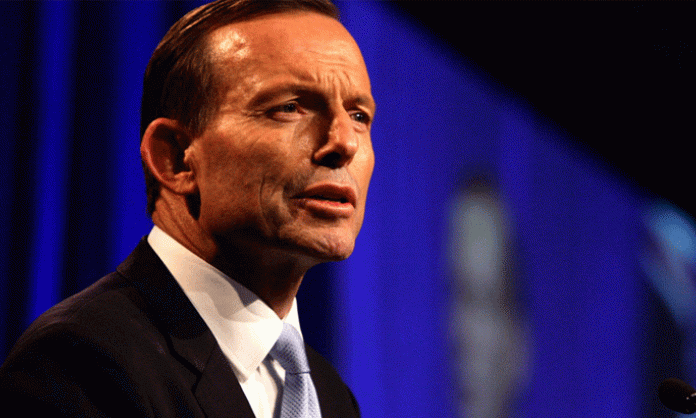We know what’s coming. Upon winning the election, Abbott declared Australia to be “under new management and open for business”.
Abbott’s “Letter to the people of Australia”, brought to us by the Murdoch press immediately after the election, shows we’ll need to fight. It doesn’t mark any huge departure from what we’ve suffered under Labor: handouts of billions to major corporations, punitive assaults on Aboriginal communities, “Operation Sovereign Borders” to attack refugees, thousands of job losses in the public service and a “review” of childcare funding that’s designed to keep childcare workers’ already miserable wages down. This is what the Australian ruling class wants, and Abbott is going to oblige.
So how can we resist?
There is nothing inevitable about the Liberals being able to carry out the bosses’ attacks. There is an enormous disconnection between the political establishment and what the bulk of the population thinks. An Essential poll in May recorded that over 60 percent think large businesses, mining companies, and people on high incomes don’t pay enough tax.
Other polling reveals that similar (or larger) majorities think the government is doing “too little” when it comes to regulating banks, or providing adequate health care, affordable public transport and quality education.
The reason so many of us think these things, despite right wing media and a barrage of “common sense” arguments for budget surpluses and the like, is that we live in a world of massive inequality, in which a tiny minority live in luxury while most struggle to make ends meet, a world of war and economic crisis that has created human misery and environmental destruction on an unprecedented scale.
Only last week, Gina Rinehart was telling us that rich people should be able to buy their way out of jail. This week Clive Palmer has shown us that rich people can buy their way into parliament.
This disconnection between the reality of how workers experience the world, and the dominant ideas, is the basis on which resistance is possible.
More important than the mere existence of an Abbott government will be the extent to which people can mobilise to resist any and every cutback in the coming years. Sitting and waiting for the next attack (or the next election) will only encourage the conservatives.
Having a Liberal maggot as prime minister has never stopped struggles breaking out. In the Menzies era of 23 years of unbroken conservative rule, there were some massive and successful strikes. The high point of social movements, from women’s liberation to the campaign against the Vietnam War, all took place under Liberal governments.
More recently, it is worth remembering that within six months of John Howard coming to office in 1996, 25,000 workers converged on Canberra in opposition to his anti-union laws and public spending cuts. Thousands of them broke into parliament’s hallowed halls (and gift shop).
A journalist described how “impertinent but agile protesters climbed up and across the holy marble parapet … and hung their banners there, Eureka and Aboriginal flags … The hitherto aloof, superior and polished parliament … seemed for a few exciting hours to be a popular amenity.”
If we want to fight Abbott, we need to build a fight back beyond parliament – on the streets, on campuses and, most centrally, in our workplaces, where in our millions workers have real power. Already there are protests in defence of refugee rights and for same-sex marriage planned in the first few weeks of the Abbott government. We can guarantee there will be strikes. The new round of attacks, while profits are sacrosanct, will see to that.
But the outcome will depend on politics and organisation. The capitalist class is acutely aware of the need for organisation – and it has immense resources at its disposal. Our side doesn’t, so it is even more important that we be organised.
That means we need to build a political alternative, a new socialist movement that doesn’t think it can win change through parliament, but instead looks to the struggles outside of parliament as the basis of a working class mass movement to overturn the whole rotten system. We are a long way from that yet, but we have to and can make a start now.
We need a political organisation of activists driven by hostility to every idea and institution that supports capitalism, and a desire to convince others of their arguments, whether it’s the need for strike action, taking on racism against refugees or the fight for equal pay for women.
Nor is it enough to be part of struggles around particular issues without also building up a socialist organisation for the future.
These struggles, though important, are temporary. At some point, their demands are met or the struggles are defeated. But if, through involvement in those struggles, more people are won to the need to challenge all forms of injustice and oppression, the need to organise in the workplaces to change society and the need for solidarity between oppressed groups against the rich and powerful – that is, to revolutionary politics – then both future struggles and the long term goal of overthrowing the system in its entirety are strengthened.









